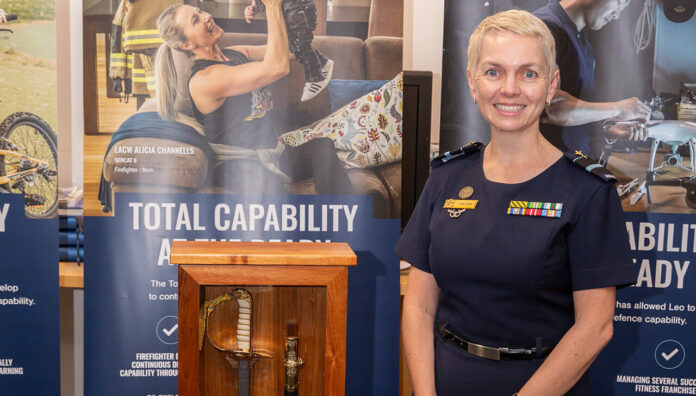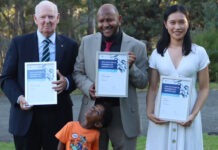Meet Air Vice-Marshal Lara Gunn, whose new Air Force rank is the equivalent of a 2-star general.
Top brass in the Australian Air Force was not what the young Lara Gunn thought would be her career trajectory when she started at the University of Tasmania’s School of Pharmacy in 1995.
Two and a half decades and numerous deployments and senior posts after seeing a newspaper advertisement for the Air Force Undergraduate Scheme, Air Commodore Lara Gunn’s promotion in November to Air Vice-Marshal (AVM) has cemented her pole position as the most senior pharmacist among the 40 in the military.
After school, while figuring out who she was and what she wanted to be, AVM Gunn saw pharmacy as a career that ‘appeared to provide me the most options’. She liked problem solving, human interaction, research, helping people and communicating, and thought it could ‘lead me to something else’ – which it did.
The Air Force Undergraduate Scheme paid for her final year of university and other expenses and committed her to the Air Force for 3 years.
‘I thought … I’ll join for a few years, I’ll travel a bit, I’ll do a bit of leadership and management training and then I’ll embark on the rest of my pharmacy career.’
Instead, she told Australian Pharmacist, ‘I just stayed because I really loved the work in the Air Force, and particularly being a pharmacist’.
Endless travel and learning opportunities
AVM Gunn has since visited every state and territory and worked at or been posted to Newcastle, Richmond, Randwick and Potts Point in New South Wales, Amberley and Enoggera in Queensland, Tindal in the Northern Territory, and Canberra.
She’s also had training or education opportunities and deployments to Japan, India and the Philippines as well as Timor Leste, twice.
AVM Gunn also returned recently from a Harvard Business School program in the United States. In between, she’s completed two masters degrees in Public Health and Strategy and Security and learned everything about health logistics and capability management, which is ‘a big part of the role of the pharmacist in the military environment’.
The role includes not only the clinical and health logistics elements of a field hospital, but medical equipment, all medical consumables, catering, meals, waste management systems, laundry management systems, vehicles, air conditioning – anything to do with establishing and running a field hospital, anywhere.
A career in the Defence Force has been ‘fantastic for continuous personal and professional development’, for travel, education and work that is interesting and diverse and ‘really meaningful when you’re talking about serving your nation’, AVM Gunn said.
Opening new doors
Teams and work and sometimes locations change every 1–3 years, so it might not suit everyone, she said. ‘It’s meaningful work. It’s always interesting. It pulls on the things that really drive me – into problem solving, communication skills, relationship building, and compassion and empathy. The military, as a whole, really provides you with a great team environment.’
Back when she joined, thinking it would only be for 3 years, ‘command positions were really the remit of doctors’ and not necessarily accessible to other health specialists.
‘That’s now opened up so it’s more competitive and more merit-based,’ she said of her rise through the ranks of Wing Commander, Group Captain and Air Commodore before her current promotion, while doing ‘some really amazing things in non-health positions’.
‘Now again, I’m promoting to Air Vice-Marshal so you can see there’s quite a few additional doors that have opened and opportunities and ranks progression that exist now that certainly didn’t exist when I first joined.’
Her military career has also exposed her to different work and diverse leadership and management styles which helped her ‘to figure out pretty quickly what qualities, what styles you do want to emulate and which ones you want to avoid’.
‘That has really shaped who I am today and has helped me be successful and get to where I am.’
Progression for pharmacists in the Defence Force is not about specialisation. As you progress through the ranks, pharmacists become less clinical and more involved in logistics, capability management and then general management, policy, leadership and strategy.
‘You’re involved more in the decision making about the organisation and the Pharmacy Officer category itself – and managing, supporting, mentoring and growing junior pharmacists.’
Innovative thinking
Working in the military promotes collaborative innovation – coming up with interesting solutions to challenges and problems via teamwork – that includes working in field environments with none of the usual supports such as clinicians, dedicated supply chains and the perfect cold chain for particular products, she said.
One of AVM Gunn’s most rewarding positions was as commanding officer of an operational health unit in Newcastle, responsible for the preparation and readiness for deployment on exercises and operations for a large team of permanent Air Force and reserve Air Force personnel. These personnel ranged from clerks to anaesthetists.
As a Commanding Officer, she said, ‘you look after your people 24/7’. This means ensuring that when not deployed, they are engaged, feel valued and are well supported.
‘They have to trust you and you have to trust them.’
While challenging, ‘it’s equally rewarding in that space because you make a real difference to the human beings that you are responsible for’.
Beyond those initial 3 years, ‘this is not where I expected to be’ years later, still serving in the military, said AVM Gunn.
‘But I’ve stayed because I genuinely love what I do. It’s incredibly interesting and meaningful work. I don’t have any regrets at all. I wouldn’t change a thing.’



 Pharmacists have always prescribed, but they have the potential to prescribe much more
Pharmacists have always prescribed, but they have the potential to prescribe much more



 Sponsorship information
Sponsorship information
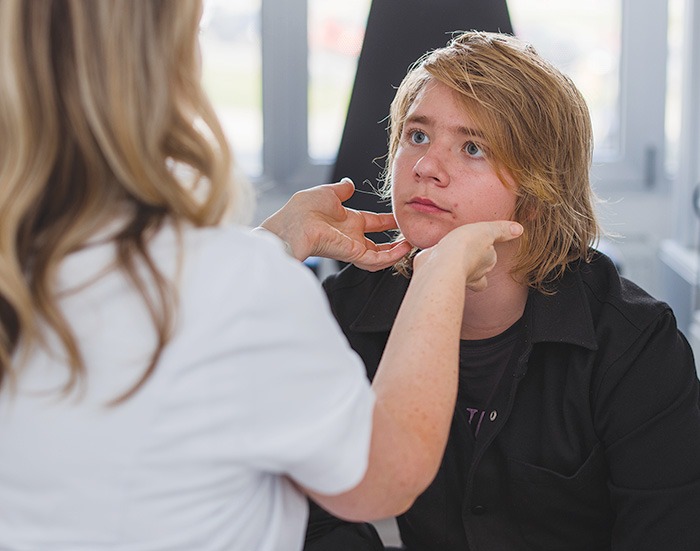
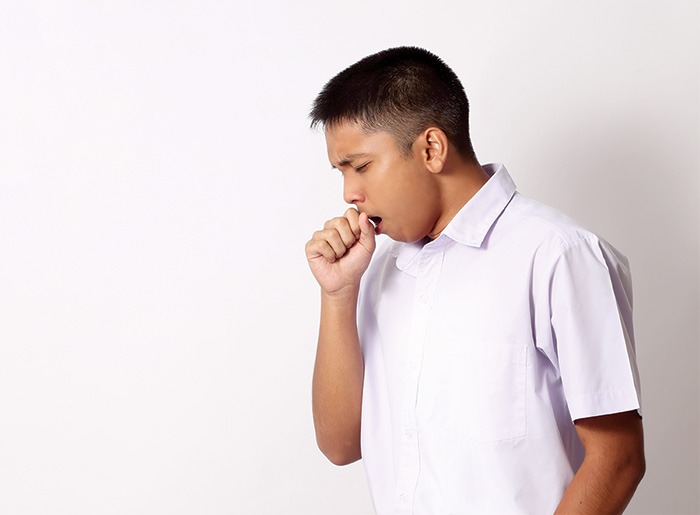
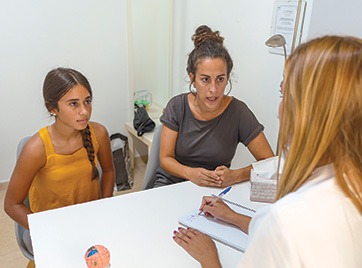 Talking to patients who have questions
Talking to patients who have questions